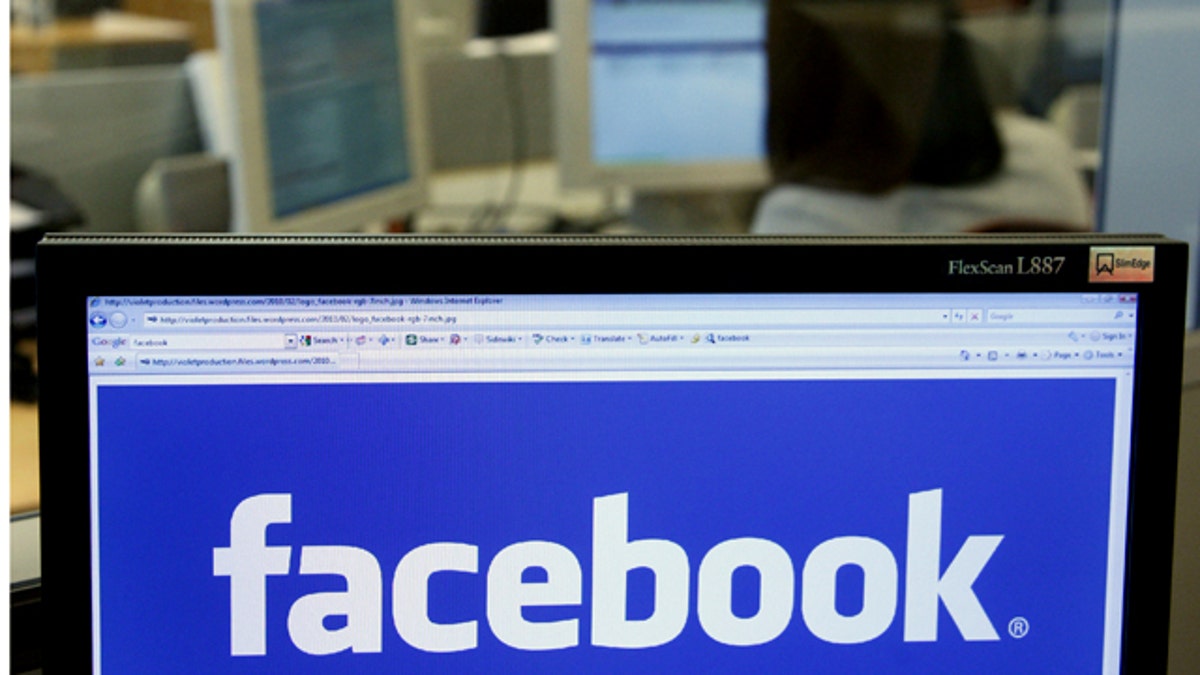
April 21, 2010: The Facebook logo is displayed on a computer screen in Brussels. (REUTERS/Thierry Roge)
How can you complain about something that's free?
More to the point, how can you complain about something you don't even have to use?
These questions came to the fore as Facebook dealt with another barrage of criticism after delivering a convoluted, confused, and cluttered update last week (and it's not finished with the update yet). Members were mighty displeased with the changes: an irrelevant ticker of friends commenting on comments, commenting on comments, ad infinitum and a news feed that makes Google's defunct Wave look like a paragon of simplicity.
The software that only a Silicon Valley programmer could love engendered a lot of "unlikes" according to a poll by one tech site, with 75 percent of those surveyed saying they hated the new look.
More serious concerns are likely to arise as people use the new so-called real-time sharing features of Facebook. Not only can it track every site you visit, it will also -- if you so choose -- post live online the music you're listening to on Spotify or Rdio, the news you're reading on Yahoo, and a slew of additional personal information. Of course, this is the same mistake Facebook made back in 2007 with Beacon, a program that incurred a class action lawsuit and was terminated in 2009.
The difference with the new Beacon is that you have to opt in to most of the features, such as sharing your Spotify playlists. I say most because there may be cases in which Facebook continues to track you. And while it may not be sharing the information with your friends, it could use it for its own purposes.
Nik Cubrilovic, an Australian tech entrepreneur, discovered recently that even after a person logs out of Facebook, the company leaves several cookie files open on the user's computer that could be used to track that person. Facebook says it does no such tracking but the social network has changed some of the logout procedure to eliminate some but not all of those cookies.
So what? Isn't this the trade-off we accept for receiving a free service? Lose a little privacy, get to post beer-pong photos for free? Not quite.
The problem is that even if you abandon Facebook, others could be tagging you in photos, putting personal information about you online, and sharing it all with their 500 closest friends. Potential employers -- and dates -- can then use that information against you without your knowledge. One example: I've been tagged in photos on Facebook that I can't delete or edit, even though at least one photo isn't even of me (now people think I was at an event I didn't attend).
More important, Facebook is not free.
You are paying with information: very, very valuable information. Facebook is selling information about you to advertisers and directing ads at you. Parsing the wording slightly, Facebook isn't selling information about JQ per se, but it is selling such information without names attached. And it's doing it very well. For the first half of the year, Facebook’s revenue doubled to $1.6 billion, according to unnamed sources in a Reuters report.
For that kind of money, perhaps you should have a say in how information about you is being used.
Others will complain, there ought to be a law against this kind of sharing. There are some. The reason U.S. Netflix users can't yet share the movies and shows they're watching automatically on Facebook, for example, is due to concerns about Bork's Law. That's the name given to the Video Privacy Protection Act, which makes it illegal to disclose personal video purchases or rental information. (Bork refers to Robert Bork, the unsuccessful Supreme Court nominee whose video rental history was leaked to the public.)
Fortunately, I predict there are going to be substantial updates to this Facebook update, primarily because it contravenes one of the most important elements of sharing: choosing what to share. It's not sharing any more if everything you're doing is posted online. Humans don't share everything because everything isn't that interesting. (My friend Fred is listening to Demi Lovato and reading about wardrobe malfunctions. Who cares?)
But no one is forcing you to use these "free" services. So if you don't like Facebook, why not leave?
That may be happening now. Last week, as Facebook was gumming up the works on its site, Google + was opening up the doors to its social climbing network. According to Experian Hitwise, the combination of factors caused traffic at Google + to jump 1,269 percent in one week. So maybe social networking users are getting more sophisticated and choosing where and with whom they share information. At least until we find out how Google is using all that information.
Follow John R. Quain on Twitter @jqontech or find more tech coverage at J-Q.com.








































